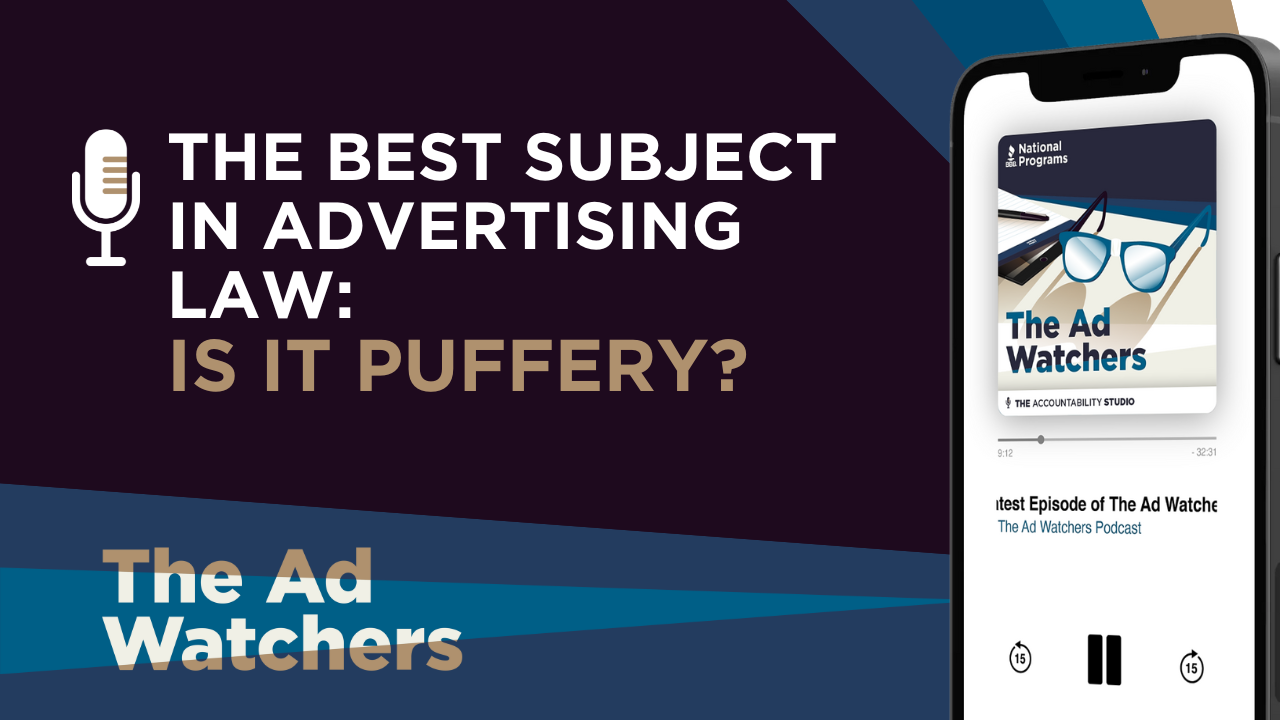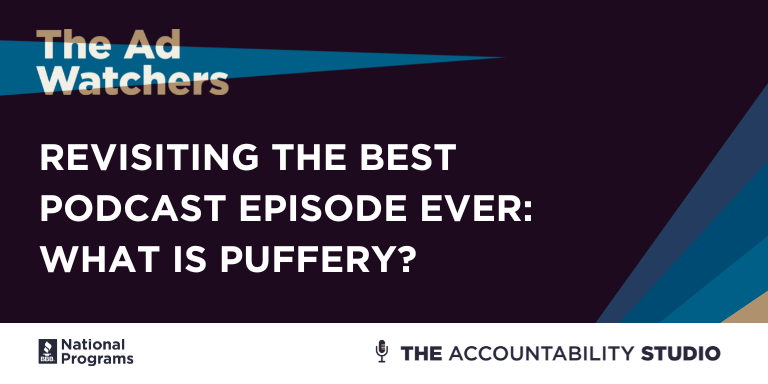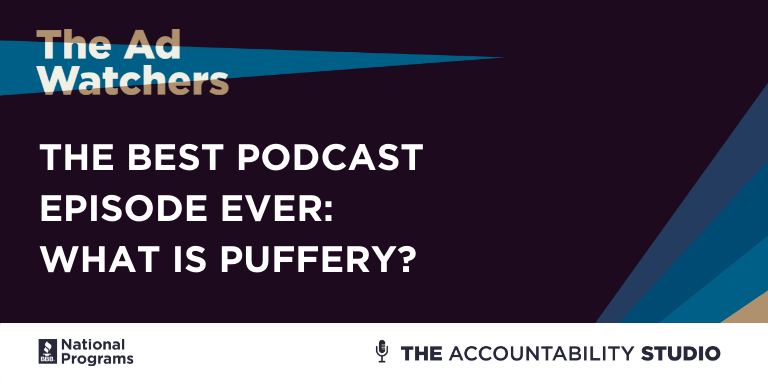Podcast (adwatchers): Play in new window | Download (Duration: 28:20 — 39.0MB) | Embed
Subscribe: Apple Podcasts | RSS

For this episode of Ad Watchers, join us for Eric’s favorite ad law topic: puffery, an exaggerated, blustering, or boastful statement or general claim that could only be understood to be an expression of opinion, not a statement of fact. But where is the line between puffery and a claim that needs a reasonable basis?
Our hosts once again revisit a fan favorite and discuss the most recent puffery cases seen before the National Advertising Division, breaking down the various facets of puffery, including the use of emojis, to answer the burning question – does it require substantiation?
Eric and Annie discuss the concept of puffery in advertising law, exploring its definition, application, and recent cases. The conversation delves into the nuances of puffery, its context-specific nature, and the challenges of distinguishing puffery from objective claims. It also addresses the use of symbols, emojis, humor, and pride in advertising, providing valuable tips for navigating puffery in advertising claims.
Key Takeaways:
- (2:00) Puffery in advertising law is a nuanced and context-specific concept that requires a deep understanding of consumer expectations and the distinction between subjective and objective claims. Advertisers must assess how their target audience perceives various claims and differentiate between what is considered a mere opinion and a factual statement.
- (8:21) The use of symbols, emojis, humor, and pride in advertising can impact the interpretation of puffery claims. It may lead to challenges in distinguishing puffery from objective claims since symbols and emojis can add ambiguity, humor can blur the lines between exaggeration and deception, and pride-based claims can appear subjective but sometimes imply objective standards.
- (9:40) When navigating puffery in advertising claims, it is important to fully brief the issues, keep claims general, and tread carefully with humor to avoid denigrating messages. Ensure all team members are aware of the legal nuances, use generalized statements to reduce the likelihood of factual interpretations, and employ humor cautiously to prevent misinterpretation or offense.
- (12:57) Understanding recent puffery cases and their outcomes provides valuable insights into the application of puffery in advertising law and the challenges faced by advertisers in defending their claims. Analyzing court decisions helps predict how similar claims might be judged, illustrates the evolving standards and expectations in advertising law, and aids in crafting defensible advertising strategies.
More episodes on puffery:


